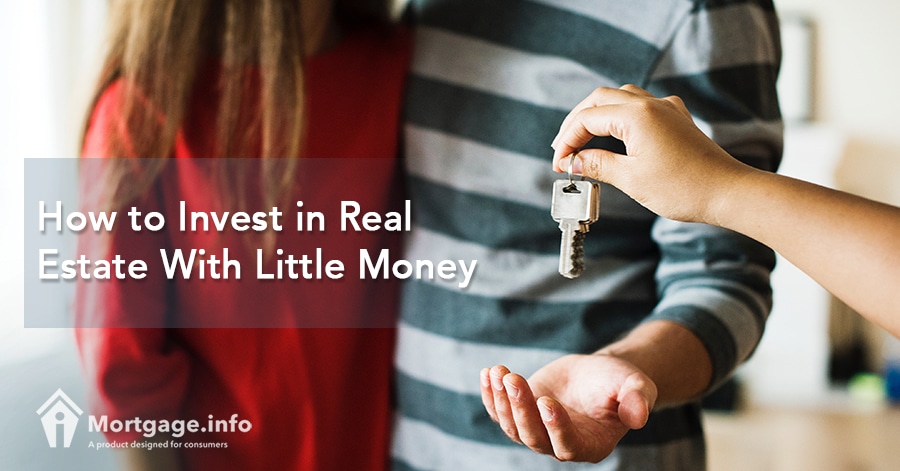
Do you avoid investing in real estate because you don’t think you have enough money? You might be surprised to learn that there are several ways that you can go about investing even without a large stash of money.
Compare Offers from Several Mortgage Lenders.
Whether you plan to buy a property and rent it out, or you want to buy a house and flip it, you can use the following tips to buy a house with little money down.
Use FHA Financing
You probably think FHA financing is only for owner-occupied properties. Technically, you are right. You can’t use FHA financing for an investment property. But there is an exception. You can use FHA loans to buy a multi-unit property up to 4 units. As long as you live in one of the units as your owner-occupied residence, you can rent the other units out.
This can be a great way to get started in investment financing. All you need is a 3.5% down payment. If the building were $250,000, you would need $8,750 down on the home. Compare this to the standard 20% down payment you’d need on an investment loan and you save up to $41,250.
You just have to be certain that you will live in one of the units. You will sign a document stating that you intend to live in the property. If you don’t, it could be a violation of the FHA rules.
Use Home Equity Financing
If you already own a home, (that you live in) and you have equity in it, you can use that equity to buy a home. It involves tapping into your home’s equity by using a home equity loan or line of credit. This gives you access to the cash you have invested in your home. You can then use that cash for the down payment on your investment property.
Click to See the Latest Mortgage Rates.
If you have enough equity, maybe you can even pay cash for the entire home. This way you have lower payments than you would have on a traditional investment property mortgage. If you can’t pay cash for the home, you at least have money to put down on the home, just remember, you’ll have two mortgage payments on your current home plus whatever financing you take for your investment home.
Find a Hard Money Lender
If you plan to buy and flip a home, you may use hard money lenders. The loans they provide are usually pretty short-term and have high interest rates. That’s why keeping this type of financing strictly for flipping houses is important.
Hard money lenders usually have flexible guidelines and offer large loan amounts. The tradeoff is the higher interest rate that you pay, but since it’s a short-term loan, the idea is that you’ll pay it off quickly when you sell the home for a profit.
Try Seller Financing
Finally, you could try seller financing. It’s not common to find sellers willing to offer financing for their home, but the opportunities are out there. Homeowners that don’t have a loan on their home may be willing to be the ‘bank’ for you. They give you the home in exchange for the promise that you’ll make monthly payments consisting of principal and interest.
Seller financing is often a short-term solution as well. Sellers often provide a balloon loan. This means fixed payments for the term of the loan with the outstanding balance due by the maturity date. The length of the loan will depend on the seller’s situation. For example, if a seller gives you a 10-year balloon loan, you would pay fixed payments for 10 years. The final payment in that 10th year would then be the total outstanding balance of the loan.
This type of financing works best if you plan to either sell the home before the loan matures or you think you’ll be able to refinance the loan once you have some equity in it.
Each of these options provides the opportunity to finance an investment property with little to no money down on it. As with any other type of loan, you’ll need to explore your options and shop for the best interest rate and/or fees. Make sure you understand the terms of the loan, especially if you take a balloon loan or use a hard money lender.
